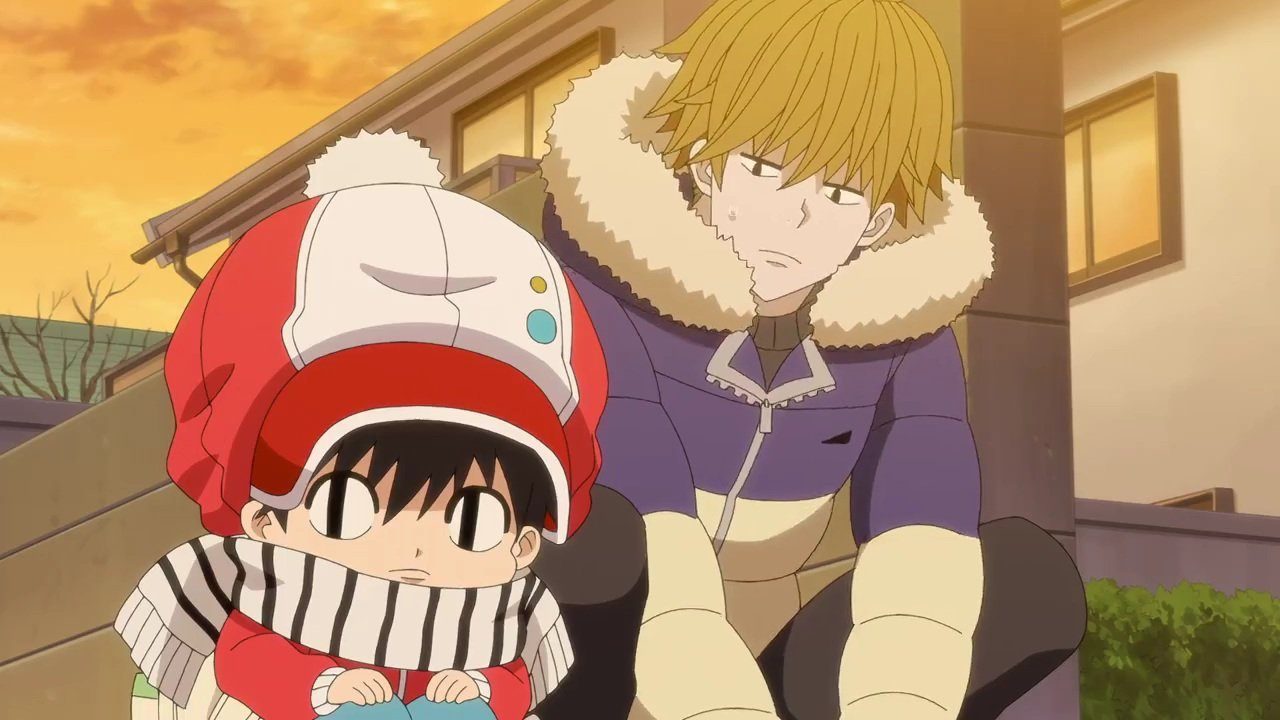Series in one sentence:
Let us hold a long conversation before we attack.
Series in more sentences:
A young man
loses the will to live, but is saved in time by an angel, who
grants him a set of powers to pursue happiness with -which unknowingly
turns him into a candidate for the world's next new god.
Just wanting to be happy, Kakehashi accumulates a group of allies to help him stop the candidates that pose a threat, earning him some followers who believe he should become god.
When a publicly respected man shows himself to be a candidate, but also threatens Kakehashi's chance to a normal life, fighting no longer seems to be the solution.
There are many "god candidates fighting each other"-animes out there, it truly is its own genre. And I like them.
What I liked less was the main character. Kakehashi is a criminally boring boy with a ham-fisted sad backstory -supposedly explaining his aggressive moral compass- and has a love interest that matches his personality. I'm baffled that these two where the main heroes of the story, any other character would've been a better option.
The premise that only suicidal people are worthy of becoming a deity, no matter how annoying and degenerate they are, I didn't follow. Why is a god allowed to be awful? It won't benefit the world of the living or the angels serving them.
Why not give random people powers, and the moment they misuse them, they fall dead. It doesn't always have to be a battle and it would still make for an interesting plot.
Sometimes the anime goes by so fast that I fail to pick up on what's being said or how a character got where they got. One example I can think of is the first antagonist's "friend", who merely looks at the bandaging around his head and immediately, without doubting a second, knows he's Metropolisman. How on Earth, this kid is the best detective in the world!
At the same time, the show progressed very slowly, I think purposely so. Like, a big event would happen, but then the entire episode just lingers on it, turning an exciting situation into a drag.
The second-half "antagonist" I liked less. I don't understand his reasoning for not wanting a god to exist, as he seems very nihilistic. What does it matter if you believe nothing to matter; and the world will come to an end eventually, anyway? This man and his dialogue were working hard to bring forth some kind of logic, but I wasn't seeing it.
The last episode was a collection of clips that refused to be clear about the main message.. or rather, nothing uttered impressed me.
The ending was surprising. So much was not clarified, like who is Nasse, and why was she so adamant on helping the most boring man in anime history?
Watch this show if you want, I'm sure it will hold your attention fine enough, but expect a consistent slowdown during action scenes, a boring romance, to get preached at by a scientist with autism, and suffer a contrived message about existence.
